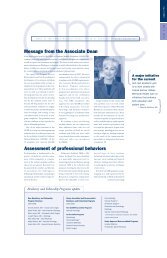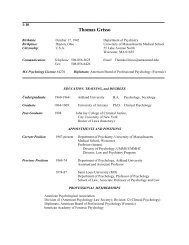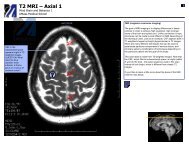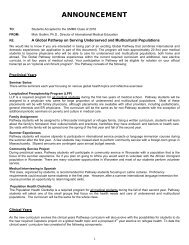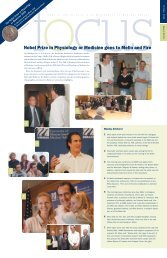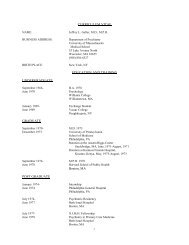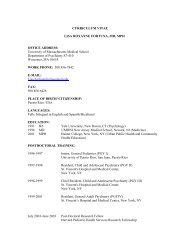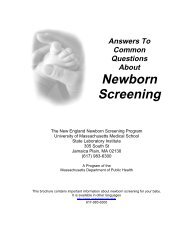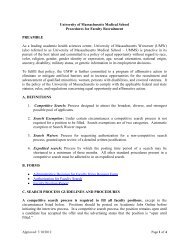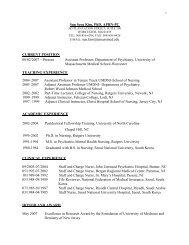Anger Management Manual - the ATTC Network
Anger Management Manual - the ATTC Network
Anger Management Manual - the ATTC Network
Create successful ePaper yourself
Turn your PDF publications into a flip-book with our unique Google optimized e-Paper software.
<strong>Anger</strong> <strong>Management</strong> for Substance Abuse and Mental Health Clients<br />
Exhibit 4. Sample of an <strong>Anger</strong> Control Plan<br />
<strong>Anger</strong> Control Plan<br />
1. Take a timeout (formal or informal)<br />
2. Talk to a friend (someone you trust)<br />
3. Use <strong>the</strong> Conflict Resolution Model to express anger<br />
4. Exercise (take a walk, go to <strong>the</strong> gym, etc.)<br />
5. Attend 12-Step meetings<br />
6. Explore primary feelings beneath <strong>the</strong> anger<br />
Relaxation Through Breathing<br />
We have discussed <strong>the</strong> physical cues to anger, such as an increased heartbeat, feeling hot or<br />
flushed, or muscle tension. These types of physical cues are examples of what is commonly<br />
called <strong>the</strong> stress response. In <strong>the</strong> stress response, <strong>the</strong> nervous system is energized, and in this<br />
agitated state, a person is likely to have trouble returning to lower levels on <strong>the</strong> anger meter. In<br />
this state, additional anger-provoking situations and events are likely to cause a fur<strong>the</strong>r escalation<br />
of anger.<br />
An interesting aspect of <strong>the</strong> nervous system is that everyone has a relaxation response that<br />
counteracts <strong>the</strong> stress response. It is physically impossible to be both agitated and relaxed at<br />
<strong>the</strong> same time. If you can relax successfully, you can counteract <strong>the</strong> stress or anger response.<br />
We will end this session by practicing a deep-breathing exercise as a relaxation technique. In<br />
session 4, we will practice progressive muscle relaxation as a secondary type of relaxation<br />
technique.<br />
24



